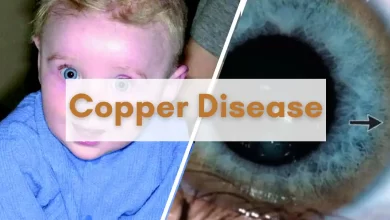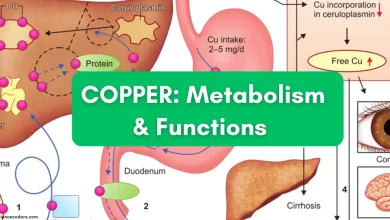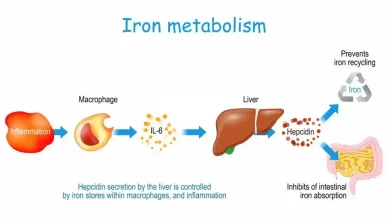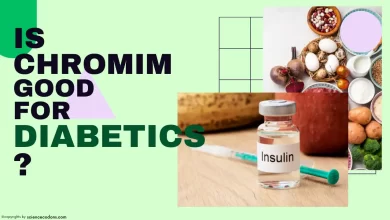Cereals are rich in chromium. It is absorbed by the intestinal cells, it is absorbed from the same transporter that zinc (Zn) is also absorbed. It is transferred inside the blood using transferrin. Transferrin is the same protein that is responsible for transporting iron. The amount of chromium in the blood of an adult is 6-20 micrograms per deciliter.

function of chromium
It plays an important role in the metabolism of carbohydrates, lipids and proteins. Chromium is considered one of the real enhancers of insulin effect, for this reason, it is called glucose tolerance factor (GFT). Chromium together with insulin improves the synthesis of proteins. It reduces cholesterol levels and prevents the formation of plaques in the aorta.
What is the function of chromium in insulin?
One of the important functions of chromium is that it acts as an insulin enhancer. The image shows how chromium does this.
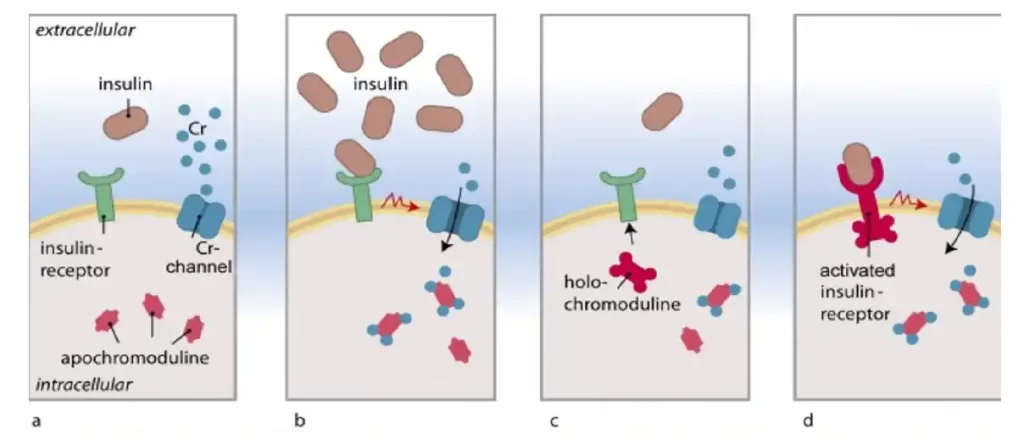
Figure a shows insulin receptors that are on the cell surface and a channels for the passage of chromium. Chromium enters the cell and binds to its protein called apochromodlin. After insulin binds to its receptor on the cell surface, and chromium binds to apochromodlin, which creates the so-called holochromodlin, then this complex (holochromodlin) binds to the insulin receptor and causes the insulin message to be sent much better inside the cell.
Note: For some patients who have diabetes, the cause of their diabetes is a lack of chromium in their body. For this reason, it is said in recent research, it is better to give chromium as a supplement to diabetic patients.
Clinical significance of chromium
Hexavalent chromium (Cr +6) is more toxic than trivalent chromium. In people who are continuously exposed to chromium, the risk of lung cancer is higher. During pregnancy and acute infections, the level of serum chromium decreases. Chromium deficiency leads to glucose intolerance, which is why chromium is given as a complementary medicine in diabetics.



